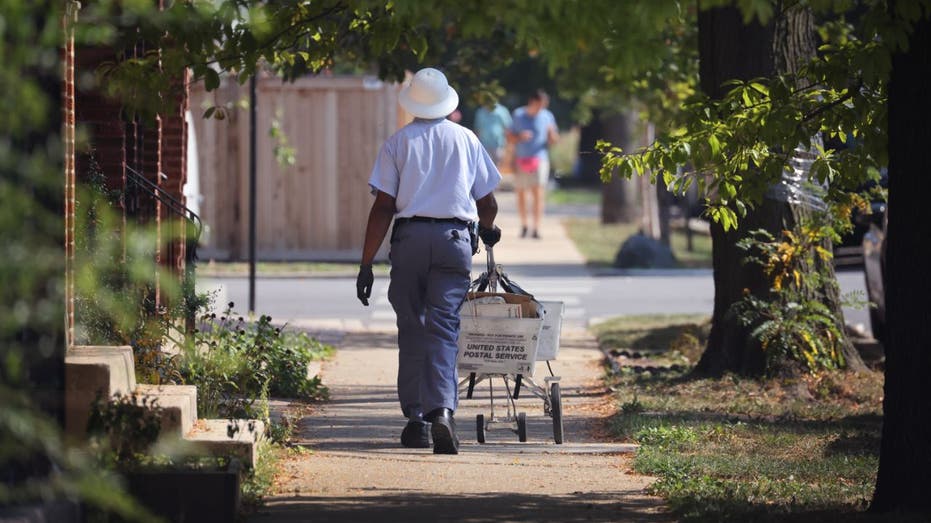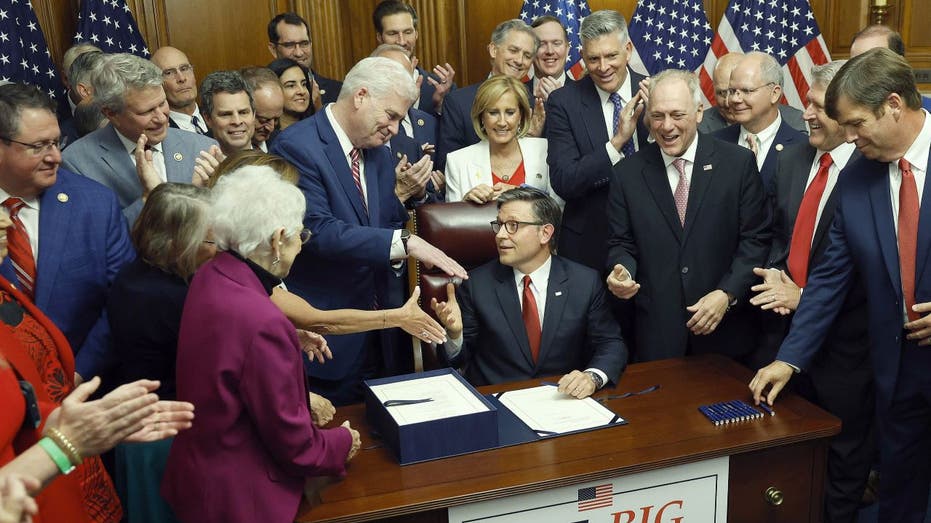

Republican lawmakers last week managed to overcome narrow majorities in the House and Senate to pass the One Big Beautiful Bill Act — a package of tax and spending reforms the Trump administration made a priority upon the start of the president's second term.
The bill addressed a wide range of tax and spending policies, though its main focus was on the extension of provisions within the Tax Cuts and Jobs Act of 2017 that were set to expire at the end of this year, which would have left many taxpayers facing an automatic tax hike.
Among those are several provisions that will have a significant impact on middle-class taxpayers.
The One Big Beautiful Bill Act (OBBBA) makes the lower tax brackets with revised income thresholds that were established by the TCJA permanent, as they were set to expire at the end of this year and revert to the old, higher rates and thresholds.

Middle-class workers will receive several tax breaks under the OBBBA. ( Scott Olson/Getty Images / Getty Images)
While the lowest bracket will retain a 10% tax rate, the second bracket will be 12% instead of rising to 15%, the third bracket $22% rather than 25%, the fourth 24% instead of 28% and the fifth bracket 32% instead of 35% had the TCJA expired.
OBBBA makes the standard deduction, which approximately doubled under the TCJA, permanent ahead of its scheduled expiration this year. The bill also increases the deduction by $750 for individuals, $1,500 for married couples, and $1,125 for a head of household, effective in the 2025 tax year. About 90% of federal taxpayers utilize the standard deduction rather than itemizing their deductions.
During last year's presidential campaign, Trump pledged to eliminate taxes on tipped income and overtime as a means of providing additional relief to working-class Americans.
While the bill stops short of fully eliminating federal income taxes on tipped income and overtime, it does create new deductions that will provide relief to such workers through 2028, when they're set to expire. Tipped workers such as restaurant servers, barbers and drivers would be able to deduct up to $25,000 in qualified tips, based on standards established by the Treasury Department.

Interest on auto loans will be deductible through 2028 for vehicles that undergo final assembly in the U.S. (David Paul Morris/Bloomberg via Getty Images / Getty Images)
The bill also creates an above-the-line income deduction for overtime premium payments of up to $12,500 for hourly workers who work overtime.
Another policy that can trace its origins to Trump's 2024 campaign pledges is the deduction for interest on auto loans.
OBBBA created a deduction of up to $10,000 for a qualified passenger vehicle loan in a taxable year, though the deduction phases out for taxpayers earning over $100,000 (the threshold is $200,000 for joint filers).
Eligible vehicles would include cars, minivans, SUVs, pickup trucks and motorcycles that are regulated under the Clean Air Act as motor vehicles and undergo final assembly in the U.S. The deduction would be available in tax years 2025 through 2028, at which point the deduction phases out.

House Speaker Mike Johnson, R-La., navigated a thin majority to advance the Senate's version of the bill through the lower chamber of Congress. (Kevin Dietsch/Getty Images / Getty Images)
Retired workers will also benefit from tax relief, though the bill doesn't completely fulfill Trump's call for "no tax on Social Security."
OBBBA provides a $6,000 bonus deduction for taxpayers age 65 and older on top of the standard deduction available to all taxpayers. That's in addition to the existing extra standard deduction of $2,000 for single filers and $1,600 per qualifying spouse for joint filers aged 65 and up.
The $6,000 bonus deduction is temporary and will be in effect through 2028. It phases out for higher-income retirees, with the full deduction available to individuals with incomes up to $75,000 or $150,000 for joint filers. It phases out entirely for individuals earning over $175,000 and couples earning $250,000.
The provision was devised as an alternative to the proposal to eliminate taxes on Social Security benefits outright, instead offsetting some of what they owe based on their income levels.
